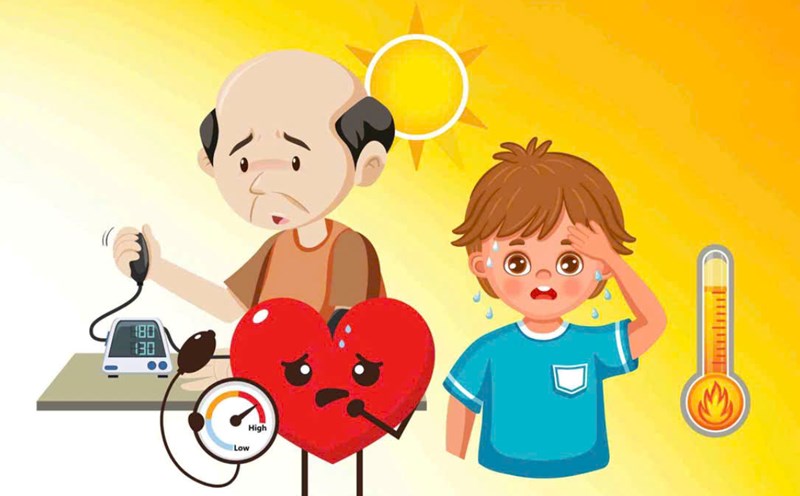Caffeine and stimulants temporarily increase blood pressure but are dangerous
Caffeine is a key ingredient that helps you feel alert after drinking a can of energy drinks. However, caffeine also blocks the activity of adenosine, a chemical that helps dilate blood vessels. When blocked, blood vessels constrict, activating the nervous system to release stress hormones like adrenaline, causing the heart to beat faster and increase blood pressure.
Cardiovascular nutritionist Michelle Routhenstein, from Entirely Nourished (USA), said: "Caffeine can temporarily increase blood pressure, but if used daily, especially in people with cardiovascular problems, it can cause serious effects".
According to cardiologist Aaron Feingold, MD at the University of JFK Medical Center, energy drinks can increase atrophy by 5-15 mmHg and atrophy by 5-10 mmHg within just one hour of taking them. For healthy people, this impact can be temporary, but for people with a history of high blood pressure, the risk will be significantly greater.
Sugar, taurine and guarana are also affected
Each can of energy drinks can contain 80-350mg of caffeine, equivalent to or many times higher than the amount of caffeine in a cup of coffee. Many people do not know exactly how much caffeine they are consuming, and the actual dosage is often higher than the standards in the studies, Feingold warned.
In addition, many energy drinks also contain stimulants such as taurine, guarana or ginseng. These substances can amplify the effects of caffeine on the cardiovascular system, increase heart rate, cause anxiety, and in some cases can lead to arrhythmia.
The combination of synthetic caffeine, stimulants, and sugar can put a lot of strain on the cardiovascular system, especially when consumed regularly or combined with alcohol, Routhenstein emphasizes.
How should you drink energy drinks?
There is currently no fixed safety level for everyone when it comes to energy drinks, due to the difference in ingredients between brands. However, according to the US Food and Drug Administration (FDA), the maximum recommended caffeine intake per day is 400 mg for healthy adults, equivalent to about 4 cups of coffee.
Feingold recommends: It is best not to consume more than one can of energy drinks per day and should even limit to the minimum if there are risk factors for cardiovascular disease. He said that for healthy people, drinking occasionally (2-3 times/week) is acceptable, but it should not be considered a daily habit.
For those who have high blood pressure, heart disease, or are taking cardiovascular-related medications, experts agree that this drink should be completely avoided.
Because, in addition to causing high blood pressure, consuming too many energy drinks can lead to arrhythmia, causing anxiety, even stroke, even in young people. Some reports have recorded cases of cardiac arrest after consuming a lot of energy drinks, especially when combined with alcohol or high-intensity physical activity.










